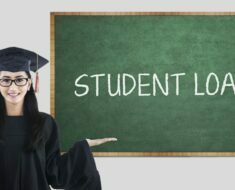While education is widely regarded as the foundation for personal and career advancement, the financial hurdles it poses often lead students to explore education loans as a means to overcome these challenges; among the pivotal factors to consider in this pursuit is the interest rate, and this article aims to provide comprehensive insights to empower you in making judicious choices regarding your educational financing

Read more.. Adani Power to Adani Enterprises — Adani Shares Fall
Read more.. Warren Buffett’s 93rd Birthday: the Investment Sage’s
Understanding Education Loan Interest Rates
1. Fixed vs. Variable Interest Rates
Education loans typically offer two types of interest rates: fixed and variable.
- Fixed Interest Rates: With a fixed interest rate, the rate remains constant throughout the loan tenure. This provides predictability, as your monthly payments will not fluctuate. However, fixed rates may be slightly higher initially than variable rates.
- Variable Interest Rates: Variable interest rates are tied to market benchmarks, such as the LIBOR or the Prime Rate. These rates can change periodically, affecting your monthly payments. Initially, variable rates may be lower than fixed rates, but they can increase over time.

Raed more.. CK Aeroflex Industries IPO: How to Check Allotment Status
Read more.. Navigating the Terrain of Quick Loans Online in India
2. Factors Affecting Interest Rates
Several factors influence the interest rates offered by lenders:
- Credit Score: A good credit score can help you secure a lower interest rate. Lenders view borrowers with higher credit scores as less risky.
- Loan Type: Federal student loans typically have fixed interest rates set by the government, while private lenders may offer both fixed and variable rates.
- Cosigner: Having a creditworthy cosigner can improve your chances of obtaining a lower interest rate, especially with private lenders.
-
Market Conditions: For loans with variable interest rates, market conditions play a significant role. Economic changes can cause rates to fluctuate.
3. Federal vs. Private Loans
Interest rates for federal student loans are typically lower and come with fixed rates. These rates are set by Congress and remain consistent regardless of the borrower’s credit score. Federal loans provide borrowers with a range of repayment plans, including income-driven alternatives designed to facilitate more manageable loan repayment, while private loans, alternatively, originate from banks and financial institutions and their interest rates fluctuate significantly based on your creditworthiness and the lending institution’s terms. It’s crucial to shop around and compare offers from different private lenders.
4. How to Get the Best Interest Rate
To secure the best possible interest rate on your education loan:
- Improve Your Credit Score: Pay your bills on time, reduce outstanding debts, and check your credit report for errors.
- Consider a Cosigner: If your credit history is limited or less than perfect, having a cosigner with a strong credit profile can help you qualify for lower rates.
- Compare Offers: Shop around and obtain loan offers from multiple lenders. Compare interest rates, terms, and repayment options.
- Understand the Terms: Read the fine print of your loan agreement to understand any fees, grace periods, and the terms of interest rate adjustments (for variable-rate loans).
Conclusion
Education loan interest rates are a crucial aspect of financing your higher education. Whether you opt for federal or private loans, understanding the nuances of interest rates is essential. By researching, comparing offers, and managing your credit responsibly, you can secure the most favorable interest rate for your education loan, making your educational dreams more achievable.







